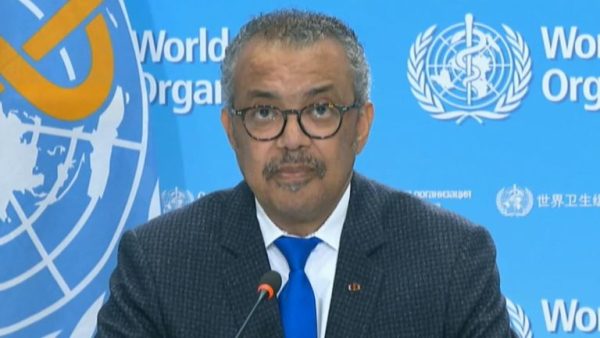The World Health Organization (WHO) has released its World Health Statistics 2025 report, revealing the profound and lasting impacts of the COVID-19 pandemic on global health. According to the report, global life expectancy declined by 1.8 years between 2019 and 2021—the steepest drop in recent history—effectively reversing a decade’s worth of health gains.
The report also highlights that increased levels of anxiety and depression linked to the pandemic reduced global healthy life expectancy by approximately six weeks. This erosion has effectively cancelled out much of the progress made in lowering mortality from noncommunicable diseases (NCDs) during the same period.
Warning signs across WHO targets
The 2025 report provides a comprehensive overview of global progress toward WHO’s Triple Billion targets and signals both the enduring effects of the pandemic and a broader, pre-existing slowdown in global health improvements.
“Behind every data point is a person-a-child who didn’t reach their fifth birthday, a mother lost in childbirth, a life cut short by a preventable disease,” said Dr Tedros Adhanom Ghebreyesus, WHO Director-General. “These are avoidable tragedies. They point to critical gaps in access, protection, and investment, especially for women and girls. Health progress is slowing. Every government has a responsibility to act, with urgency, commitment, and accountability to the people they serve.”
While WHO exceeded its goal of helping 1 billion more people live healthier lives—achieving 1.4 billion by the end of 2024—progress on the other two targets lags behind. Only 431 million more people gained access to essential health services without financial hardship, and 637 million were better protected from health emergencies.
Maternal, child health gains in jeopardy
The report notes a worrying stall in the reduction of maternal and child mortality. Between 2000 and 2023, maternal deaths declined by more than 40% and child deaths under five halved. However, these gains are now at risk due to underinvestment in primary healthcare, shortages of skilled health workers, and service disruptions such as immunisation and safe childbirth.
Without immediate action, the world could face an additional 700,000 maternal deaths and 8 million under-five deaths between 2024 and 2030.
Noncommunicable diseases: Leading lause of early death
Premature deaths due to NCDs—including heart disease, stroke, diabetes, and cancer—are rising and now constitute the majority of deaths among people under 70 globally. Although tobacco use and alcohol consumption have declined—alcohol falling from 5.7 to 5.0 litres per capita from 2010 to 2022—air pollution remains a leading cause of preventable death, and poor mental health continues to undermine overall progress.
The report also notes a projected shortfall of 11.1 million health workers by 2030, with nearly 70% of the gap concentrated in the WHO African and Eastern Mediterranean regions.
“Strong health systems rely on strong health information,” said Dr Haidong Wang, WHO Unit Head for Health Data and Analytics. “Through the SCORE strategy and the World Health Data Hub, WHO is helping countries standardize, improve, and unlock the value of health data.”
Uneven progress on infectious diseases and health risks
While rates of HIV and tuberculosis are declining, and fewer people require treatment for neglected tropical diseases, other areas show concerning trends. Malaria has resurged since 2015, and antimicrobial resistance continues to grow. Immunisation coverage, including the third dose of the diphtheria-pertussis-tetanus (DTP3) vaccine, has not yet returned to pre-pandemic levels.
Progress is also faltering in addressing foundational health determinants such as malnutrition, air pollution, and unsafe living conditions. Additionally, disruptions in international aid threaten to destabilise progress in countries with the highest healthcare needs.
“This report shows that the world is failing its health check-up. But countries have demonstrated that rapid progress is possible,” said Dr Samira Asma, WHO Assistant Director-General for Data, Analytics and Delivery for Impact. “With speed, scale, and smart investments, every country can deliver measurable gains and reduce premature deaths.”


